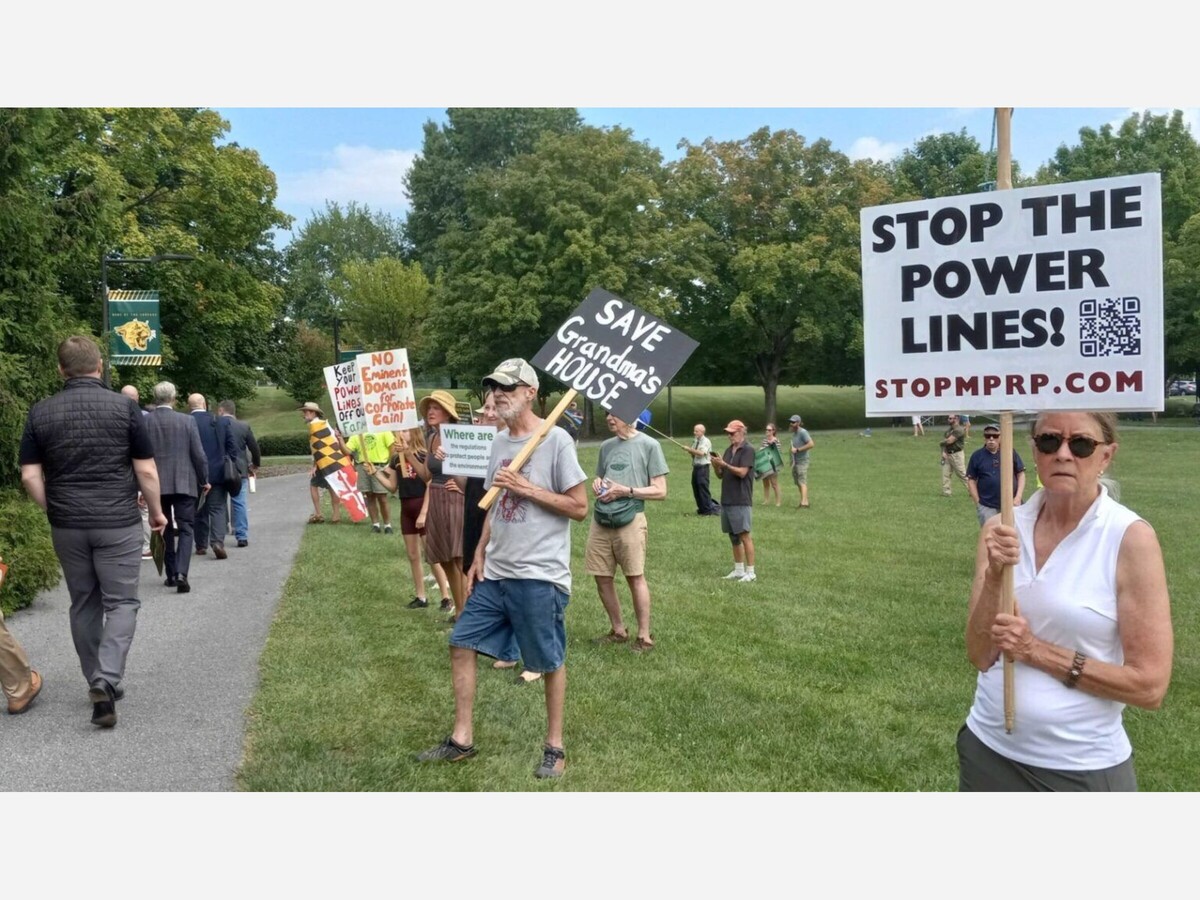Image

Piedmont power line company files a second lawsuit against defiant landowners
Company says a third suit — also seeking access to private property for land surveys — could be coming
The company behind a proposed power line that would cut across northern Maryland filed suit Tuesday against another 200 landowners who have refused to give project surveyors access to their property.
The lawsuit, filed in the U.S. District Court for Maryland by the New Jersey-based power company PSEG, comes just weeks after a federal judge ruled in PSEG’s favor in a similar suit against 117 other Maryland landowners who had refused access to their properties.
Dozens of landowners have appealed that ruling to the 4th U.S. Circuit Court of Appeals but, so far, U.S. District Judge Adam B. Abelson’s June 20 ruling remains in effect.
And PSEG spokesperson Bill Smith said Wednesday that the company’s April lawsuit was just round one. The case filed this week, involving 149 properties, is round two and the company expects there will be a round three, Smith said.
“The initial filing was done to prioritize certain surveys that had a need to be done sooner rather than later, whether it was seasonality or something like that,” Smith said.
In the meantime, Smith said “there’s nothing preventing” PSEG from beginning the first round of surveys authorized by Abelson. The company anticipates issuing 24-hour notices to landowners for the surveys in the “near future,” he said.
The latest lawsuit will also be heard by Abelson. In Tuesday’s filing — as in the “round one” case — PSEG argued that the clock is ticking on the Maryland Piedmont Reliability Project (MPRP).
The company argues that it was selected by the regional electric grid operator, PJM Interconnection, and given a deadline of June 1, 2027, to place the 67-mile power transmission line in service — or risk blackouts or other woes due to increasing strain on the electric grid.
Opponents of the project have cast doubt on the urgency and necessity for the power line.
To build the line, though, PSEG must go through the Maryland Public Service Commission, which is currently considering whether to issue the company a key certificate that would let it move forward with construction. But in March, officials from the Maryland Power Plant Research Program deemed PSEG’s application deficient, in part because it was missing information that could be obtained from on-the-ground surveys.
From the beginning, PSEG has run into vocal opposition, spearheaded by rural landowners in the path of the proposed line, which runs through parts of Baltimore, Carroll and Frederick counties. They argue the project is poised to destroy beloved rural lands, interrupting family farms, forested lands, streams and a longtime youth camp.
Joanne Frederick, a landowner named in the first lawsuit, is the president of Stop MPRP, the nonprofit formed to oppose the transmission line. She said Wednesday that the landowners who had refused access to PSEG, but were not named in the first lawsuit, had been waiting on “pins and needles” to see what action PSEG would take.
“They could have just filed against everyone,” Frederick said. “To continue to draw this process out and continue to torture landowners is unfortunate.”
During a hearing in Baltimore in May, attorneys representing the landowners argued that if PSEG were allowed to access the properties before receiving its certificate from the PSC, it would essentially be unlawfully wielding the power of eminent domain before getting government sign-off.
But PSEG attorneys argued that such an interpretation of eminent domain law would make it impossible for them to obtain the surveys needed to obtain the certificate from the PSC.
Ultimately, PSEG’s arguments won out, with Abelson allowing the company to access the properties of 117 landowners at any time while the PSC is still considering its case — so long as it provided notice 24 hours in advance.
Now, Frederick is living with the knowledge that at any time, PSEG could place a notice on her door, and come onto her property the next day to perform surveys for a project she passionately opposes. And she isn’t sure yet what those surveys on her land might involve or how long they could last.
“Every time a delivery person comes to my driveway, it causes a certain amount of fear,” she said. “Oh no. Is this it?”
Matt Moran, a Frederick County landowner, is among the Marylanders sued Tuesday.
“We’ve been trying to live normal lives, but it’s really hard when you have this heavy weight hanging over you, and you don’t know what’s going to happen,” Moran said.
As he spoke, Moran said he was walking through the tract of woods on his land that the power line could go through, a mature stand of red oaks and hickories. He said his father originally purchased the land to get off the grid, and built a home that ran on solar energy.
“I just think it’s sad that it’s rolling through here of all places,” Moran said.
Despite the fact that Abelson already ruled in PSEG’s favor, Moran said he remains hopeful that the landowners will ultimately prevail, in part because he believes PSEG failed to consider other alternatives adequately — like building the Piedmont project close to pre-existing power lines.
“I’m hoping that somehow we can stop it,” Moran said. “We have a pretty good case.”